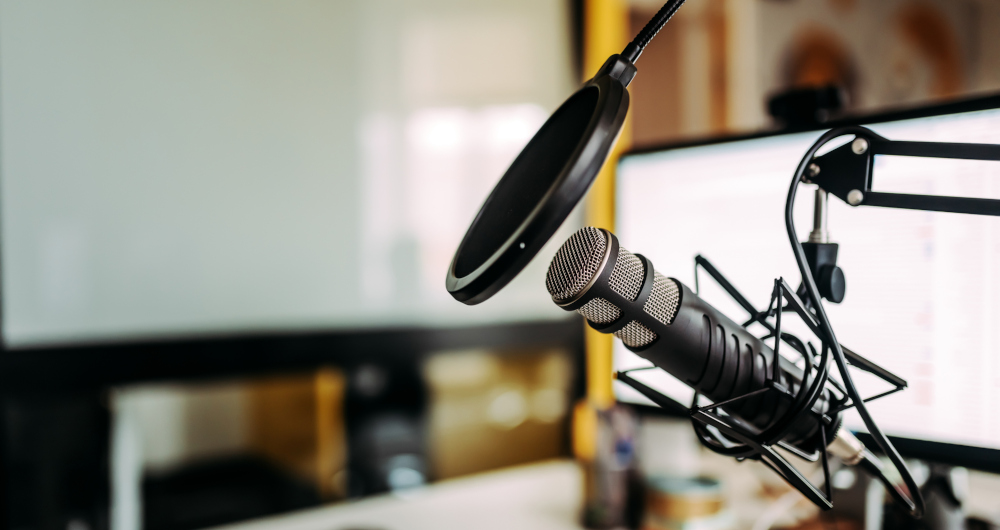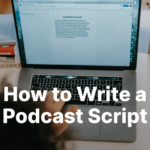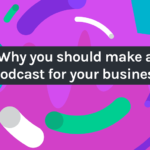The word “record” gets used a lot in podcasting. We use the word so much that we sound a bit like… well, broken records. And now I’m going to use it some more in order to answer three frequently asked questions:
- What is a digital audio recorder?
- Do I need one?
- Which one should I choose?
Sound good? You’d hope so eh. That’s the entire point of these wee gadgets…
What is a Digital audio recorder?
First up, because of the clunkiness of the term “digital audio recorder”, and the ambiguousness of the word “recorder”, I like to call these “podcast recorders” – even though you can record more than just podcasts with them.
Podcast recorders are fully-fledged audio studios that you can carry around in the palm of your hand. They’re typically about the size of a gaming controller. They can work as stand-alone kit, letting you record directly into them. You can also plug additional gear into them.
Do I need a podcast recorder?
Here are 3 reasons why you might need one:
- If you carry a podcast recorder around in your bag, you can quickly set it up and hit record. This “any place any time” functionality makes this kit perfect for on-the-go podcasters who cover things like travel, sporting events, and live music.
- Have you ever spent months trying to nail down the perfect guest, only for your ageing computer to start playing up on the day? Owning a podcast recorder means you don’t need to be at your computer, or even connected to the internet. Instead, your audio is recorded into your device’s memory card. You avoid the heartbreak of losing a recording an hour into a great conversation.
- While portability is a big draw of podcast recorders, they’re just as good in permanent setups, too. They look much less cluttered than traditional mixing boards, which are complete overkill for most podcasters, anyway. Podcast recorders also free up your computer’s memory for things like scripts, show notes, and impromptu mid-episode Google searches.
Which podcast recorder should I choose?
The good news is that there are a lot of great recorders out there to choose from. The bad news? There are a lot of great recorders out there to choose from.
Unless you’re an eccentric millionaire looking to collect every piece of podcasting kit on the market though, then you only need to buy one. I can’t just recommend one, because budget and setup will determine what’s best for you.
Let’s cover all bases and settle on five options.
1. Sony ICD-UX570: best digital voice recorder for meetings
Sony has always impressed me with its products — and the Sony ICD-UX570 Digital Voice Recorder is no different. It has an elegant interface that isn’t too busy. Unlike many other popular digital dictation recorders, the Sony ICD-UX570 focuses on what’s more important — sound quality and excellent performance.
2. Olympus WS-882: best voice recorder with noise cancellation
Olympus WS-882 is based on the idea of recording audio with clearer playback quality. What I really like about this voice recorder with transcription is the easy organization of the audio recordings. All the recorded files can be stored in 5 different folders — one for music and one for saved podcasts — and each can save up to 400 files. It combines innovative design and advanced technology into one — so you can record high-quality audio every time.
3. Sony ICD-PX470: best voice recorder with built-in USB
If your work involves transferring files, the Sony ICD-PX470 is something you should try. It comes with a built-in USB connector that makes transferring files an absolute breeze. There’s also an auto voice recording feature to reduce the unwanted background noise and create clear sound quality recordings.
4. Tascam portacapture X8: best voice recorder for podcast
What stood out to me at first glance with Tascam Portacapture X8 is its ability to record multiple tracks simultaneously or separately. It also offers many other integrated recording tools, like auto-gain control, low-cut filter, noise gate, compressor, limiter, reverb, and a normalized feature. If you’re a singer, musician, or podcaster, you might want to opt for this best voice recorder for podcasts.
5. Philips DPM8000 pocket memo voice recorder: best for lectures
If you want to quickly record a lecture, give the Philips DPM8000 Pocket Memo Voice Recorder a chance. This digital voice recorder has an asymmetrical and ergonomic shape that fits quite well in one hand. You can carry this voice recorder for lectures — all thanks to its lightweight and slim design. Plus, this pocket memo voice recorder isn’t overly complicated and has a clear user interface.
All set?
Hopefully, these five options cover all of your needs. Regardless of which one you opt for, be sure to check out Wokpa for the editing, production, and publishing process, too.



